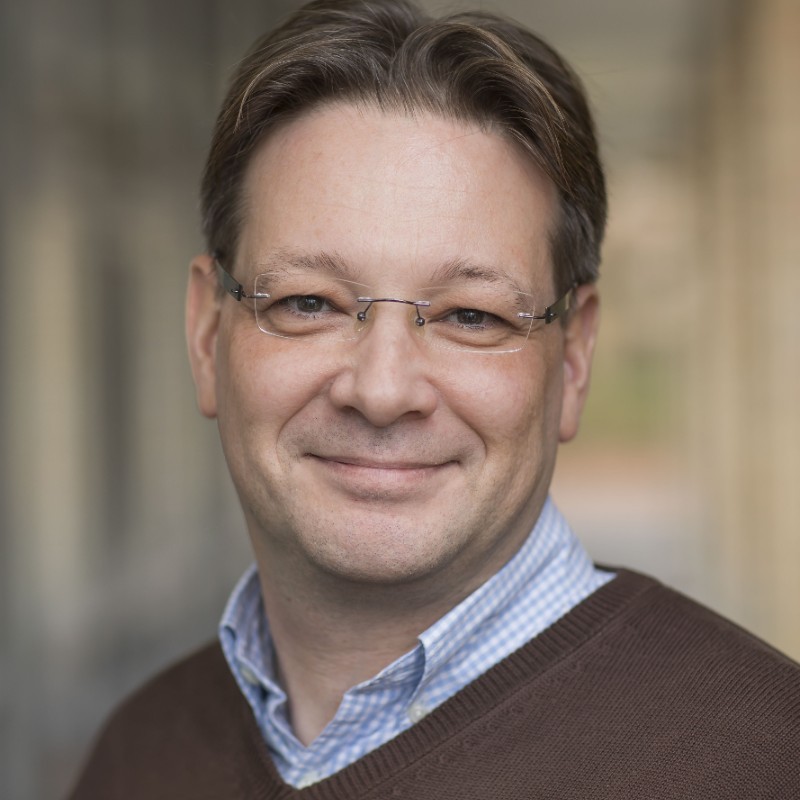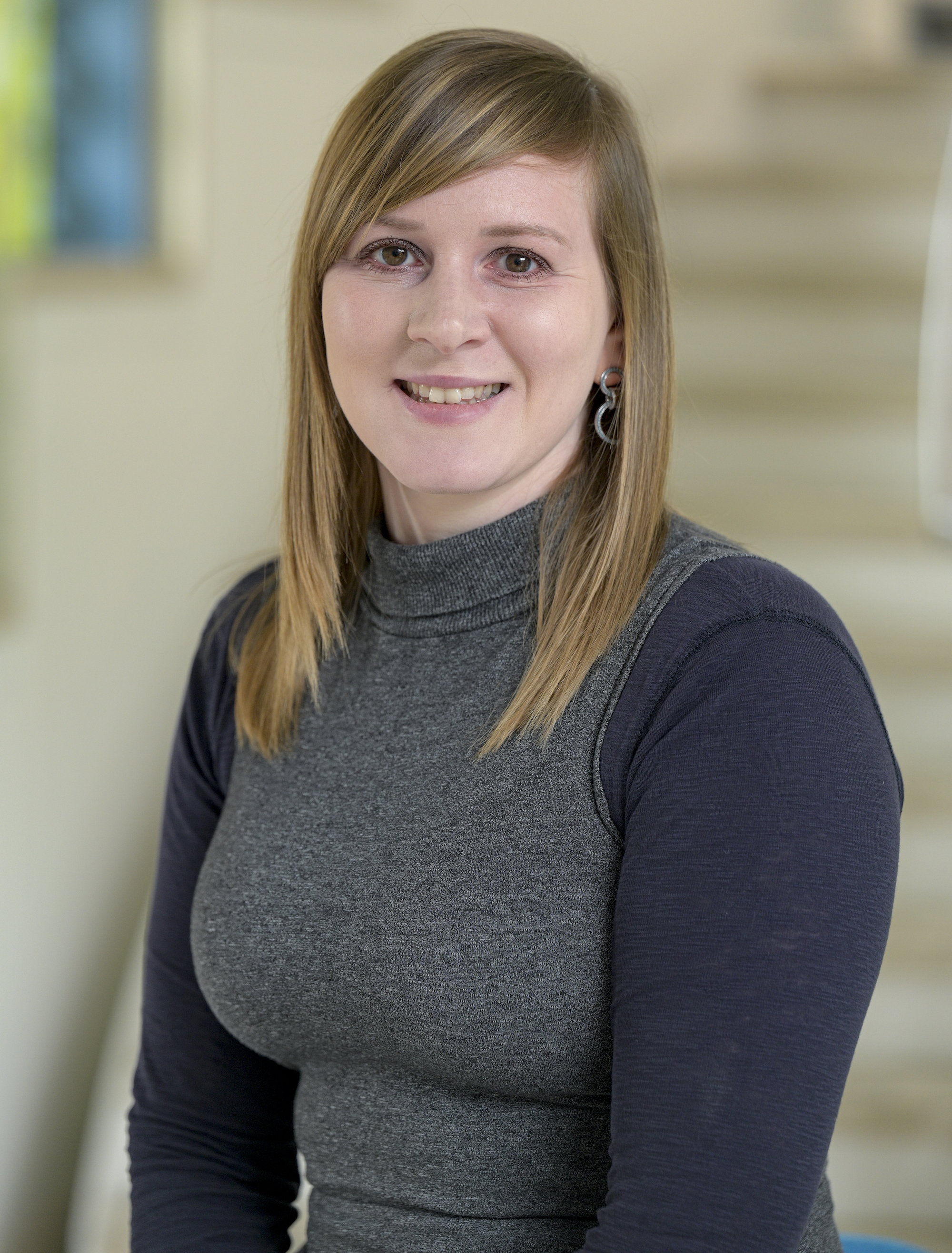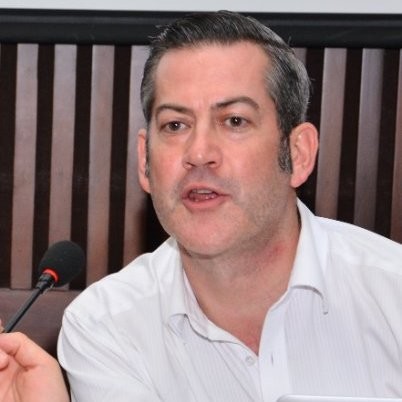KnowLedger Steering Committee#
I am delighted that the following experts in a variety of areas around research data management have agreed to be part of the KnowLedger Steering Committee (KSC).
Oliver Koepler#

Oliver Koepler is Head of the Lab Linked Scientific Knowledge at TIB – Leibniz Information Center for Science and Technology. He holds a PhD in Organic Chemistry from the Technical University of Braunschweig, Germany. He has experience in the area of Data Science and Digital Libraries for over 20 years. Dr. Koepler and his team develop advanced data management systems, services and tools for ontology development and curation, and semantic data linking. His lab’s projects focus on connecting users with data and services.
Dr. Koepler collaborates with engineering and materials science researchers across three large collaborative research centers at Leibniz University Hannover, Paderborn University, and the University of Kaiserslautern-Landau, focusing on semantic research data infrastructures. He co-founded and leads the German National Research Data Infrastructure NFDI4Chem consortium together with Prof. Christoph Steinbeck. In NFDI4Chem he is overseeing the development of its Terminology Service, Search Service, and terminology development. He also initiated the international community workshop series, Ontologies4Chem, to foster standardization and interoperability within the chemistry ontology community. As spokesperson of the section on (meta)data, terminologies, and provenance for the German National Research Data Infrastructure NFDI and member of the EOSC Task Force Semantic Interoperability Dr. Koepler promotes semantic interoperability through ontology harmonization, metadata standards, knowledge graphs, and terminology services.
Beth Knazook#

Beth Knazook is a preservation professional and photo historian specialising in providing care and access to photographic collections and special media in cultural heritage organisations. She holds a PhD in Art and Visual Culture from Western University and an MA in Photographic Preservation and Collections Management from Toronto Metropolitan University/George Eastman House International Museum of Photography and Film. In her current role as the Research Data Project Manager for the Digital Repository of Ireland, she is working to advance the repository’s support for FAIR research data and leading the Legacy Data Preservation Pilot, designed to support Humanities and Social Science researchers with closed data projects at risk of loss. From 2022-2024, she was the Work Package Lead for the Cultural Heritage Case Study (WP13) in the WorldFAIR Project, a Horizon Europe funded initiative to promote global cooperation on FAIR data policy and practice. Prior to joining DRI, Beth was the Preservation Coordinator for the Portage Network, an organisation established by the Canadian Association of Research Libraries to foster a national research data culture through the provision of services and infrastructure (now a part of the Digital Research Alliance of Canada). She was also the Digitization Manager for Huron County Library and Curatorial Specialist for Toronto Metropolitan University Archives & Special Collections. She continues to teach professional development courses on managing photograph collections for Library Juice Academy and the Society of American Archivists.
Alexandra Kokkinaki#

Alexandra Kokkinaki holds a PhD in Medical Informatics and serves as a Senior Semantic Web Scientist at the British Oceanographic Data Centre (BODC), UK. She is the technical lead for the NERC Vocabulary Server (NVS) and the product owner of its accompanying suite of tools.
Dr. Kokkinaki contributed to the Ocean Data Interoperability Platform (ODIP) I & II, collaborating with external partners to develop the innovative Rosetta Stone translation service, which enables dynamic vocabulary translations. She also worked with the SWE Marine Profiles group to deliver Common SensorML Profiles and specialized SensorML vocabularies. As the lead developer of BODC’s OGC sensor infrastructure, she delivered standardized sensor data and metadata services.
Her work includes involvement in the Oceanids UK project, creating a unified infrastructure for controlling NERC’s unmanned long-range vehicles, and providing technical leadership in vocabulary development for the SeaDataCloud project. She was also a contributing author to the Information Management Framework for Environmental Digital Twins (IMFe for DTs) and actively participates in its pilot implementation.
Currently, Dr. Kokkinaki works on several EU projects. In the FAIR-EASE project, she led the development of the Semantic Analyzer (SA), a tool that analyzes datasets and metadata records to map their annotations to semantic artifacts. This tool is leveraged in the Blue-Cloud project to enhance semantic interoperability across instruments, variables, platforms, and keywords. Within ENVRI-Hub NEXT, she integrates the I-ADOPT framework to support a unified hub for datasets and services.
Dr. Kokkinaki is a member of the Semantic Interoperability Task Force for the European Open Science Cloud (EOSC) and contributes to the Cross-Domain Interoperability Framework (CDIF) working group. She is also co-chairing the RDA Vocabulary Semantic Services Interest Group (VSSIG).
Samantha Pearman-Kanza#

I am a Senior Enterprise Fellow at the University of Southampton, and a Pathfinder Lead on Process Recording for the Physical Sciences Data Infrastructure (PSDI) Initiative - www.psdi.ac.uk. I am part of the AIChemy Hub Team (run out of Imperial College London and the University of Liverpool), working on process recording and data management, and also coordinate the Future Blood Testing Network (www.futurebloodtesting.org) run out of the University of Reading. I sit on the Advisory Boards for the Future Labs Live Conference in Basel, London Labs Live in the UK, the Machines Learning Chemistry Project at the University of Nottingham, and the KnowLedger Project at the University of North Florida, in addition to being a member of the UK electronic information Group (UKeiG) STRIX Committee. I am a regular columnist for the Lab Horizons Magazine under the name CompSci Cat, discussing important issues around process recording and FAIR data. My key research areas are ELNs, process recording, FAIR data, data stewardship and research data management, and semantic web technologies.
Nicole Jung#

Nicole Jung is working at the Compound Platform at Karlsruhe Institute of Technology as part of the group of Stefan Bräse at KIT-Campus North. Nicole’s work focuses on the integration of organic synthesis with advanced cheminformatics and research data management tools. Her work contributed to the advancement of data management systems and electronic lab notebooks, by linking experimental workflows with automated data extraction and cheminformatics tools. Other projects focus on the establishment of a research data repository for chemistry (Chemotion repository) and the development of an archive for chemical compounds (Molecule archive). Nicole is currently engaged in the development of an automated chemistry platform - ChemASAP - capable of performing automated synthesis, characterization, testing, and data collection. Nicole Jung is a task area lead of the National Research Data Infrastructure for Chemistry (NFDI4Chem).
Erik Shultes#

From 2018, Erik has been the Lead FAIR implementation at the GO FAIR Foundation and is currently Senior Researcher leading FAIRification efforts at the Metabolomics and Analytics Center, Leiden Academic Center for Drug Research (LACDR). Erik is co-author on the original publication of the FAIR Guiding Principles, co-developer of the first FAIR maturity evaluation service and architect of the now widely adopted FAIR Implementation Profile for driving FAIR Convergence. Along with Barbara Magagna, Erik created the Three-Point FAIRification Framework. These efforts include the development of the first accredited and qualified FAIR awareness training programs for executives and front-line data producers. Erik is currently co-chair of the FIP & Practice Working Group of the FAIR Digital Object Forum. Erik is an evolutionary biologist with a data-intensive research focus and has held previous academic appointments at the University of California Los Angeles, The Whitehead Institute for Biomedical Research at the Massachusetts Institute of Technology, and the Santa Fe Institute.
Steve McEachern#

Steve McEachern commenced as Director of the UK Data Service at the University of Essex in August 2024, following 15 years as Director of the Australian Data Archive (ADA), at the Australian National University (ANU). As Director, he is responsible for the strategic development and direction of the Service and leading the partnership of five organisations delivering the Service from 2024-2030.
Steve has high-level of expertise in data archiving and survey data collection, and has been actively involved in the development and application of new methods, and technological advancements, in these areas over the past 25 years. This included leadership of the Social Surveys work package in the recently completed WorldFAIR project. He also has 25 years of experience in the teaching of research methods in the social sciences.
Steve is currently the treasurer of CODATA, the International Science Council’s Committee on Data; vice-chair of the DDI (Data Documentation Initiative) Alliance Executive Committee; and co-chair of the Research Data Alliance Social Science Interest Group. He was a member of the Australian Academy of Science’s National Committee on Data in Science from 2021-2024.
Simon Hodson#

Executive Director of CODATA since August 2013, Simon Hodson is an expert on data policy issues and research data stewardship. He chaired the European Commission’s Expert Group on FAIR Data which produced the report Turning FAIR into Reality, and he was vice-chair of the UNESCO Open Science Advisory Committee, tasked with drafting the UNESCO Recommendation on Open Science. Simon was also the coordinator of the WorldFAIR Project. As Executive Director he oversees all CODATA activities including the WorldFAIR+ initiative. He is a member of the Data Documentation Initiative Scientific Board.
Stephan Schürer#

Stephan Schürer is a Professor in the Department of Pharmacology, Associate Director of Data Science at the Sylvester Comprehensive Cancer Center and Director of Digital Drug Discovery at the Institute for Data Science & Computing at the University of Miami.
Dr. Schürer studied chemistry at Humboldt University of Berlin and University of California Berkeley. Following his PhD from the Technical University Berlin, he built and directed the international operations to the develop life science information technology and scientific content products at Libraria and Eidogen-Sertanty Inc, two technology startups in San Jose California where he was a founding member. After building the operational and discovery cheminformatics platform at Scripps Florida to support Scripps Drug Discovery and the Scripps Molecular Libraries Screening and Probe Discovery Program, he started his academic career at the University of Miami. At Miami, he developed the BioAssay Ontology (BAO) which has become the de-facto standard to describe drug discovery assays and is widely used across the industry. Among numerous research collaborations, Dr. Schürer has served as Principal Investigator in several national and international research consortia, the Molecular Libraries Program (MLP), Library of Integrated Network-based Cellular Signatures (LINCS), Big Data to Knowledge (BD2K), Illuminating the Druggable Genome (IDG), Rapid Acceleration of Diagnostics (RADx), and Molecular Phenotypes of Null Alleles in Cells (MorPhiC).
The Schürer Systems Drug Discovery Research Group develops and applies data science approaches across the domains of chemistry, biology, and medicine with applications in drug repositioning and -rescuing, precision combination therapies, and developing novel small molecules with specific biological functions and mechanisms. The research programs interface data science, cheminformatics, computational biology, and medicinal chemistry. To make large and diverse datasets FAIR (Findable Accessible, Interoperable and Reusable) and enable the development of data-driven and semantic models, our group develops data standards, ontologies, and full stack software applications.
Jim Warren#

Dr. James A. Warren is the Director of the Materials Genome Program in the Material Measurement Laboratory of the National Institute of Standards and Technology (NIST). After receiving his Ph.D. in Theoretical Physics at the University of California, Santa Barbara, in 1992 he took a position as a National Research Council post-doc in the Metallurgy Division at NIST. In 1995, with three other junior NIST staff members, he co-founded the NIST Center for Theoretical and Computational Materials Science, which he has directed since 2001. From 2005-2013 he was the Leader of the Thermodynamics and Kinetics Group. His research has been broadly concerned with developing both models of materials phenomena, and the tools to enable the solution of these models. Specific foci over the years has included solidification, pattern formation, grain structures, creep, diffusion, wetting, and spreading in metals. In 2010-11, Dr. Warren was part of the ad hoc committee within the Office of Science and Technology Policy’s National Science and Technology Council (NSTC) that crafted the founding whitepaper on the Administration’s Materials Genome Initiative (MGI). Since 2012, Dr. Warren has served as the Executive Secretary of the NSTC MGI Subcommittee, coordinating inter-agency efforts to achieve the goals laid out in the MGI. He is Fellow of the American Physical Society, ASM International, and the Metals, Minerals and Materials Society.
